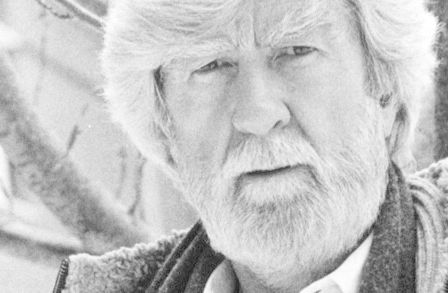Margaret says it’s nothing more than perspective.
She’s right, of course: perspective
being “the art of delineating solid objects
upon a plane surface so as to produce
the same impression of relative positions
and magnitudes, or of distance, as the actual objects
do when viewed from a particular point”
(Oxford Standard), the point
being the full and light-filled moon looked at,
here in mid-October, from the perspective of walking away from it
down Beacon Court. Perspective was what I lacked
an ability with when I was an art student
trying to sight down the row of different-storied
buildings on the far side of the street,
each one distinct yet connected,
as in a Hopper or Utrillo,
sun shadow or pencil-marking rain. Night, though,
is another thing altogether.
I’d just turned to consider
the blue cloud passing like a floating island nation
on the opposite end of the sky, then
turned back only to realize how high the moon had traveled,
had, in no time, risen as if lifted.
Perspective, Margaret said: like the problem I had drawing
depth of field, the illusion of a line diminishing
(the famous looming stones of graves in Queens
foreshadowing the skyline of Manhattan),
since perspective is as much about
the imagination as it is about
Brunelleschi.
As memory,
too, like too much in our lives, is perspective,
and between now and then often all we have.
Those, for instance, whom we’ve loved and unloved,
forming a line behind us, eventually fade,
in the long century photograph,
to the size of children or the half
of half of nothing of what they were.
I don’t have the answer.
Come close, we say, but keep your distance
(as if perspective were a dance).
And as you walk away you’ll disappear
(as if you’d not existed, were never here).
